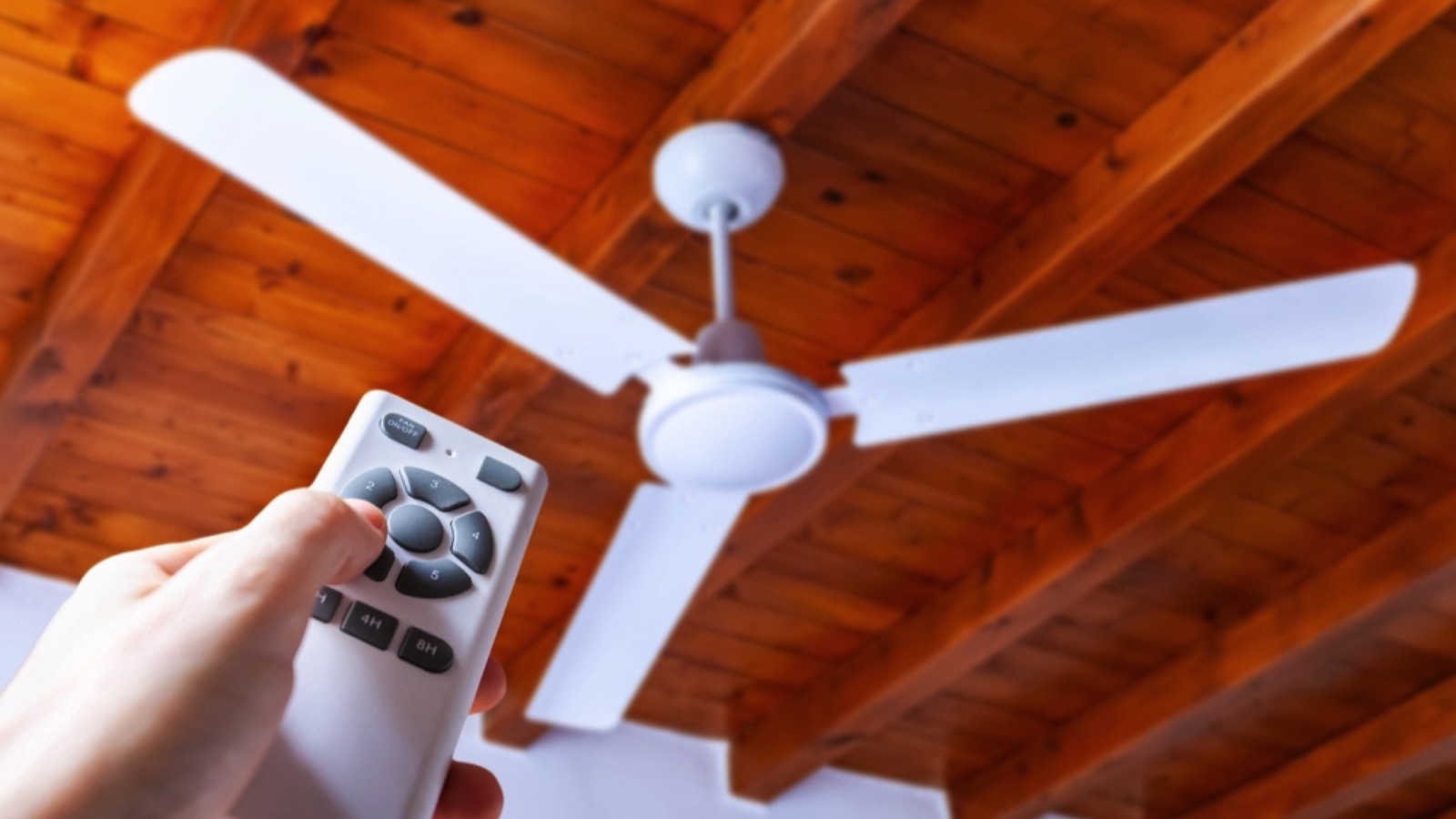Are you tired of getting your energy bill every month only to find spikes in usage and price? You might want to search your home for the pesky energy vampires.
These vampires could be draining expensive energy right before your eyes, even when they’re not in use. This reviews some of the electronics that raise the energy bill and suggests ways to make them more efficient.
1. Audio/Visual Gear

Audio equipment like amplifiers, subwoofers, sound bars, and internet radio receivers can suck an average of 100-200 watts, costing as much as $180 a year. You don’t need to keep these electronics plugged in when not in use.
The next time you want to have a house party and pump up the music, you can plug them back in and know you’ll be saving electricity for the rest of the year.
2. Fans

I have bad news for those who like to sleep with a fan on all night. These cooling devices are energy eaters, costing people over $50 a year.
An easy way to cut this cost in half is to invest in a fan with a timer that turns off in the middle of the night. If you sleep hot, you can always open a window or switch to lighter sheets in the summer.
3. Televisions

Televisions can use as much as 54 watts annually when not in use. These unused watts can add up and cost you a lot of money at the end of the year.
If you have televisions in multiple rooms in your home, try unplugging the ones not regularly used. You can also adjust the power setting on your TV or disable its “quick start” setting to save on energy.
4. Aquariums

While it might be nice to watch the colorful fish swim around in your home aquarium, it’s also important to note that it’s an electrical vampire. Caring for the fish will use 200 watts a year, costing over $200.
The main reason it uses so much energy is the heater. You can save money on these costs by putting the tank near direct sunlight or insulating the aquarium. You can also unplug the light at night to save some of those valuable watts.
5. Desktop Computer

Desktop computers are very efficient in terms of energy costs, but you can still save money during the year by turning them off when they’re not in use.
For optimal energy savings, plug the monitor, printer, computer, and speakers into one power strip and turn that off when the devices are not in use. To take it a step further, set your computer to sleep after 30 minutes of inactivity.
6. Fishpond Equipment

A backyard koi pond might be a nice accent to a well-groomed garden, but it’s also a financial responsibility. These ponds can cost as much as $600 in electrical bills.
Unfortunately, you can’t turn the pump off at night while fish live in it, so money-saving options are limited. The only real option is to invest in an energy-saving pump that lowers the pond’s monthly cost.
7. Central Air Conditioning

The central air conditioning unit is one of the biggest energy consumers in our home. Keeping our homes cool and refreshing in the hot summer months costs a pretty penny.
To use your air conditioning unit efficiently, you must shut off unused rooms, set the thermostat correctly, and turn it off when you’re not home. You can also install a smart thermostat to set the temperature when you’re away or turn it off when it hits a specific temperature. You can also unplug the unit entirely in the cooler months when it’s no longer needed.
8. Heat Pumps

Your heat pump can use as much as 4,700 watts of power, which is $13.54 to run all day, or $420 if you have it on 24 hours a day for a whole month. Small cracks where windows and doors shut or poor insulation can cause your pump to work harder, consuming even more electricity.
The quickest way to save is to turn off your heat pump when you’re not home or unplug it during the summer.
You can also use a smart thermostat to control the temperature from room to room and turn it off during the day when it is warmer, or you aren’t home.
9. Water Heaters

Water heaters are one of the biggest energy drains in your home. Fortunately, they don’t need to run all day and only use the energy when actively heating water. Still, these appliances use over 1,000 watts and can cost $0.45 per hour.
Obviously, the easiest way to lower usage is to use less hot water. You can do this by adjusting your heater thermostat to a lower setting. It’s also smart to use your hot water more responsibly. You can run your dishwasher and washing machine on full loads or take shorter showers.
10. Washer/Dryer

Speaking of saving money on hot water, your washing machine can use a lot of it. Make sure you use your machine for full loads only to get the maximum efficiency from the machine.
If you want to stretch your dollars further, you can hang clothes out to dry on a clothesline. You’ll save some electricity, and your clothes will also take on that fresh air smell.
11. Water Pumps

Water pumps are essential to your home running smoothly, so their electrical cost comes with home ownership. Still, if you have the correct type of pump for your home and ensure it is only running when needed, you can save some money.
You should plan on a pump that uses 1,400 watts and costs you $160 annually.
12. Space Heaters

These nifty devices can help keep us warm in the winter, but they can also spike the electric bill. Space heaters can suck out 1,500 watts, costing $.15 an hour. That doesn’t sound like much, but using one for eight hours a day, seven days a week adds up.
Instead of running the space heater, consider layering with warm sweaters, comfy socks, or a heavy blanket.
13. Refrigerator

The problem with refrigerators is that they’re always in use because they keep our food from spoiling. There are, however, ways to make them run more efficiently.
First, make sure you have the right size fridge for your household. Fridges that aren’t as full require the appliance to work harder to keep the temperatures down. Second, keeping the door closed keeps the temperatures from rising and overworking the appliance.
14. Video Game Systems

Popular video game consoles can stay connected to the network even when unused. A simple way to defeat this vampire sucker is to turn off the “instant on” mode that most of these consoles have.
You can also do it the old-fashioned way by just unplugging it.
15. Light Bulbs

There’s a reason your dad told you to turn off the lights when you left a room. You wouldn’t think these little light bulbs could cost so much money, but leaving lights on in unused rooms can consume a ton of energy.
Being diligent about turning off lights when you aren’t home or setting your lights to timers can help you reduce unwanted energy costs and keep you from turning into your dad.
45 SURPRISING WAYS TO MAKE AN EXTRA $500 A MONTH

Who couldn’t use an extra $500 a month? Here are 45 legitimate and realistic ideas you may not have thought of to add some extra cash to your wallet.
45 SURPRISING WAYS TO MAKE AN EXTRA $500 EVERY MONTH
14 HIGH-PAYING JOBS THAT NOBODY ACTUALLY WANTS TO DO

People avoid certain high-paying professions like the plague, even though they offer excellent salaries and benefits. Why is that? Here are some jobs that are not as popular as you might think.
14 HIGH-PAYING JOBS THAT NOBODY ACTUALLY WANTS TO DO
17 RETIREMENT MISTAKES TO AVOID AT ALL COSTS

We wanted to know some of the biggest retirement mistakes that people are making, according to financial experts. What is most fascinating is that the majority of them have nothing to do with finances.
17 RETIREMENT MISTAKES TO AVOID AT ALL COSTS
